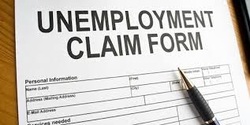
 For the second week in a row, there were no opinions on unemployment benefits from the Minnesota Court of Appeals released this week. This is unusual, because there is typically at least one opinion released each week.
2 Comments
October 27, 2014 Summary of Decisions on Unemployment Benefits From the Minnesota Court of Appeals10/27/2014 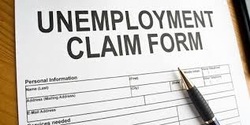 There were three decisions on unemployment benefits from the Minnesota Court of Appeals this week, including one where I represented the applicant. That case is noteworthy because it deals with a challenge to the constitutionality of the reconsideration statute. The second is a fairly typical misconduct case -- not showing up for work when you are scheduled is misconduct. The third is noteworthy because the judge's determination of whether the applicant had earned enough in the previous benefit year to establish a benefit account was remanded -- or sent back to the department -- for further factfinding. 1. A14-0159, Pamela Beidel, Relator, vs. Corporate Commission of Mille Lacs Band of Ojibwe Indians - Grand Casino Hinckley, Respondent, Department of Employment and Economic Development,Respondent. Summary: Relator challenges the unemployment-law judge’s (ULJ) decision that she was discharged for employment misconduct and ineligible for unemployment benefits, arguing that she did not engage in misconduct and that a portion of the Minnesota Unemployment Insurance Law is unconstitutional. More specifically, Relator argued that the portion of the reconsideration statute requiring the same unemployment law judge who presided over the evidentiary hearing where benefits were denied is unconstitutional. We affirm the ULJ’s decision and conclude that relator’s constitutional challenge fails 2. A14-0230, Mark M. Lazo, Relator, vs. Moguls F & B LLC, Respondent, Department of Employment and Economic Development, Respondent. Summary: Relator Mark M. Lazo challenges an unemployment-law judge’s (ULJ) determination that he is ineligible for unemployment benefits because he was discharged for employment misconduct after he failed to report to work on two occasions. Lazo argued that he was not scheduled to work on those dates, but the Appeals Court affirmed the determination of ineligibility. 3. A14-0228, Chaquita Broadway,Relator, vs.Minnesota State Agricultural Society-Minnesota State Fair, Respondent, Island Therapeutic Massage Wellness Center, Respondent, Department of Employment and Economic Development, Respondent. Summary: In this certiorari appeal, relator argues that the unemployment-law judge (ULJ) erred by concluding that she did not meet the minimum requirements to establish an unemployment-benefit account. As the Appeal Court stated, Credibility was central to the ULJ’s decision because Broadway’s testimony was the only evidence that she received an additional $550 in wages. Because the ULJ’s decision not to credit Broadway’s testimony had a significant effect on the outcome, the ULJ was required to provide her reason for discrediting that testimony. See Minn. Stat. 268.105, subd 1a(a).; Wichmann v. Travalia, 729 N.W.2d 23, 29 (Minn. App. 2007). Because the ULJ failed to do so, we remand for the ULJ to make additional findings. If you are denied unemployment benefits, or are an employer who wants to challenge a former employee's eligibility for benefits, your best bet is to meet with an attorney who handles unemployment appeals to discuss your options. To that end, I represent both applicants and employers in unemployment appeals. Please call (763) 450-9494 today to set up an appointment to discuss your situation. WARNING: The information contained in this blog post does not constitute legal advice and may not be applicable to your situation. Reading this blog post does not create an attorney-client relationship between you and Baland Law Office, P.L.L.C. Also, Tim is licensed only in state and federal courts in Minnesota. As such, any information provided in this blog post pertains only to those jurisdictions. Further, you should always discuss your situation with an attorney before taking any action based on what you may read in this blog. To that end, please call (763) 450-9494 to set up an appointment to discuss your situation. October 20, 2014 Summary of Decisions on Unemployment Benefits From Minnesota Court of Appeals10/22/2014 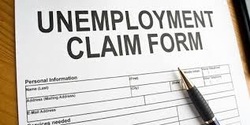 This week there were four decisions on unemployment benefits issued by the Minnesota Court of Appeals. The first is noteworthy because it is an appeal by the employer involving the interesting question of whether a person is an employee or independent contractor. The second is curious because, although the case involves issues of employment misconduct, one of the three judges on the Court of Appeals panel that heard the case dissented. The third case stresses the importance of filing a timely appeal of an unfavorable determination. The fourth case is a fairly unremarkable employment misconduct case. Summary: 1. A13-2345, Monica Peterson, Respondent vs. A-Z Friendly Languages, Inc., Relator, Department of Employment and Economic Development, Respondent. This appeal concerns whether an unemployment law judge correctly held that an agency that provides interpreter services is obligated to cover its former interpreters as “employees” eligible to receive unemployment benefits. A-Z Friendly Languages, Inc., challenges an unemployment law judge’s determination that one of its interpreters and all similarly situated workers are employees rather than independent contractors. We hold that the circumstances demonstrate that interpreter Monica Peterson worked only as an independent contractor. Even if this were not so, the unemployment law judge lacked a sufficient factual basis to extend his ruling to characterize all similar workers as employees. We reverse. 2. A14-0226, Mario Vasquez, Relator, vs. Safe-Way Bus Co., Respondent, Department of Employment and Economic Development, Respondent. Relator challenges an unemployment-law judge’s decision that he is ineligible for unemployment benefits because he was discharged for employment misconduct. The ULJ found that Relator had "used" his cell phone while driving a bus by turning the ringer on silent, thereby committing employment misconduct. The Court of Appeals affirmed the decision, but the dissent wrote that: I respectfully dissent because I believe the majority misinterprets an employer’s suggestion as a directive, thereby engaging in inappropriate fact-finding and undermining the remedial purpose of the unemployment-benefits statute. 3. A14-0153, Jagjewan Tamaldeo, Relator, vs. Marsden Building Maintenance LLC, Respondent, Department of Employment and Economic Development,Respondent. Relator Jagjewan Tamaldeo seeks review of the decision by an unemployment law judge (ULJ) affirming the dismissal of his appeal of an ineligibility determination as untimely. In this case, Relator filed his appeal one day late, but the law is clear that A determination of ineligibility is final unless the applicant files an appeal within 20 calendar days after the determination is sent to the applicant. Minn. Stat. § 268.101, subd. 2(f) (2012). “An untimely appeal from a determination must be dismissed for lack of jurisdiction.” Stassen v. Lone Mountain Truck Leasing, LLC, 814 N.W.2d 25, 29(Minn. App. 2012). “There is no equitable or common law denial or allowance of unemployment benefits.” Minn. Stat. § 268.069, subd. 3 (2012). For all of these reasons, the Appeals Court affirmed the decision. 4. A14-0391, Ali Jama, Relator, vs. Marsden Building Maintenance LLC, Respondent, Department of Employment and Economic Development, Respondent. We affirm the decision of the unemployment-law judge (ULJ) that relator committed employment misconduct by failing to complete an assigned task because the ULJ’s findings are substantially supported by the record and because the ULJ conducted a fair hearing. If you are denied unemployment benefits, or are an employer who wants to challenge a former employee's eligibility for benefits, your best bet is to meet with an attorney who handles unemployment appeals to discuss your options. To that end, I represent both applicants and employers in unemployment appeals. Please call (763) 450-9494 today to set up an appointment to discuss your situation. WARNING: The information contained in this blog post does not constitute legal advice and may not be applicable to your situation. Reading this blog post does not create an attorney-client relationship between you and Baland Law Office, P.L.L.C. Also, Tim is licensed only in state and federal courts in Minnesota. As such, any information provided in this blog post pertains only to those jurisdictions. Further, you should always discuss your situation with an attorney before taking any action based on what you may read in this blog. To that end, please call (763) 450-9494 to set up an appointment to discuss your situation. 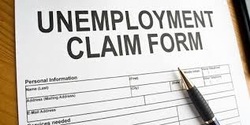 This week there were two unpublished opinions from the Minnesota Court of Appeals related to unemployment benefits. The relator in the first case challenges the ULJ’s determination of her ineligibility to collect unemployment benefits based on the fact that her appeal was untimely. The appeal by the relator in the second case one see many times – the ULJ’s decision that she is ineligible to receive unemployment benefits because of employee misconduct. Both cases were affirmed. 1. A14-0225 Diane Quick, Relator, vs. Polar Semiconductor, Inc., Respondent, Department of Employment and Economic Development, Respondent. Summary: On certiorari review from an unemployment-law judge’s (ULJ’s) decision dismissing relator’s appeal as untimely, relator argues that (1) her appeal from a determination of ineligibility based on her reason for quitting was not untimely because the Department of Employment and Economic Development (DEED) had not yet ruled on the companion issue of whether she was able to work and was actively seeking work; (2) her submission of responses to questions before the appeal deadline constituted an appeal under Minn. Stat. § 268.103, subd. 2(b) (2012); and (3) DEED sent relator documents containing erroneous information that led her to believe she no longer needed to appeal from the determination of ineligibility Here are the three responses from the Court in regard to relator’s three argumentative issues above: (1) Minn. Stat. § 268.095, subd. 1(7), states that the ineligibility exception for quitting employment for medical necessity “raises an issue of the applicant’s being available for suitable employment under section 268.085, subdivision 1, that the commissioner must determine.” But nothing in this section states that both issues must be resolved together or that the statutory appeal time limit is tolled until the issue of availability for work is resolved. We note that ineligibility issues may arise at different times. Therefore, we conclude that DEED was not required to issue a unitary determination on all issues related to relator’s eligibility for unemployment benefits. (2) Relator also contends that the act itself of responding to DEED’s request for information showed that relator believed herself to be entitled to benefits. But DEED asserts that relator’s responses in no way address the issue of whether she quit for personal or medical reasons. We agree. We conclude that the October 7 statement cannot reasonably be interpreted as an appeal of the September 24 determination of ineligibility. (3) We agree with relator that the notifications she received from DEED indicating the presence or absence of “pending” issues related to her eligibility for benefits were confusing, but we conclude that the statements were not so misleading that the burden of the misunderstanding should be borne by DEED. Relator did not fully follow DEED’s appeal instructions where her determination of ineligibility letter clearly stated that the determination would be final on October 14, 2013, and relator did not appeal the determination until October 16, 2013. Relator was determined ineligible for benefits on two separate bases, either one of which would result in her inability to receive benefits. Although the Court affirmed the ULJ’s decision, I found the last paragraph of the Court’s decision interesting, noting, DEED’s “ . . . lack of clarity with which it communicates with applicants for benefits. . . Deed should carefully consider how and what it communicates with applicants for benefits so as to fulfill its purpose as stated in law.” 2. A14-0233 Deborah Brakefield, Relator, vs. IND. School District #2889, Respondent, Department of Employment and Economic Development, Respondent. Summary: Relator challenges the decision by an unemployment law judge (ULJ) that she was discharged for employment misconduct and is ineligible for unemployment benefits, arguing that the ULJ improperly relied on hearsay and improperly interpreted other evidence; that she was prejudiced because certain evidence was not available; and that she had been subjected to discrimination and a hostile environment. Because substantial evidence supports the ULJ’s decision, relator received a fair hearing, and she did not raise claims of discrimination or a hostile work environment to the ULJ, we affirm This week there was also an Order Opinion released. Cases that involve a few simple issues may be decided by order opinions, which include little discussion of the facts of the case and a brief analysis of the laws that are involved. This Order Opinion merits attention because DEED conceded that it erred in determining whether Relator was eligible for unemployment benefits. Still, the Order Opinion does not say how the ULJ erred. 3. A14-0654 Vernon E. Wallace, Relator, vs. Metro Center for Independent Living, Inc., Respondent, Department of Employment and Economic Development, Respondent. Reversed and remanded. Summary: In this petition for certiorari review, relator Vernon E. Wallace challenges the March 14, 2014 decision by an unemployment law judge (ULJ), in which the ULJ affirmed his initial decision that relator is ineligible for unemployment benefits because he was discharged for employment misconduct. Relator asks this court to reverse or, in the alternative, to reverse and remand for an additional hearing. Respondent Minnesota Department of Employment and Economic Development (DEED) filed a letter in lieu of a respondent's brief, conceding that the ULJ erred and asking this court to reverse and remand with instructions for the ULJ to hold another hearing and consider additional evidence. Accordingly, the case was reversed and remanded. If you are denied unemployment benefits, or are an employer who wants to challenge a former employee's eligibility for benefits, your best bet is to meet with an attorney who handles unemployment appeals to discuss your options. To that end, I represent both applicants and employers in unemployment appeals. Please call (763) 450-9494 today to set up an appointment to discuss your situation. WARNING: The information contained in this blog post does not constitute legal advice and may not be applicable to your situation. Reading this blog post does not create an attorney-client relationship between you and Baland Law Office, P.L.L.C. Also, Tim is licensed only in state and federal courts in Minnesota. As such, any information provided in this blog post pertains only to those jurisdictions. Further, you should always discuss your situation with an attorney before taking any action based on what you may read in this blog. To that end, please call (763) 450-9494 to set up an appointment to discuss your situation. October 6, 2014 Summary of Decision on Unemployment Benefits From Minnesota Court of Appeals10/7/2014 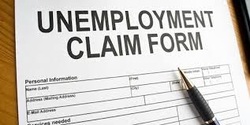 There was only one decision on unemployment benefits this week from the Minnesota Court of Appeals. The decision was released on October 6, 2014. The case is a good illustration that an applicant for unemployment benefits who quits employment must have a good reason to quit caused by the employer, but is noteworthy because this is the third time that the case has been before the Appeals Court. A14-0371, Lennis Bentrud, Relator, vs. Robin Drug Corp., Respondent, Department of Employment and Economic Development, Respondent. Summary: On certiorari appeal from a determination by an unemployment law judge (ULJ) that relator is ineligible for unemployment benefits, relator argues that the ULJ erred by determining that she quit employment without good reason caused by the employer. Relator argued that she quit because of physical harassment and intimidation directed at her by her supervisor, but the ULJ ultimately determined that Bentrud quit because her supervisor altered her timecard, with the result that she was paid for time off instead of having to take time off without pay. The Appeals Court concluded "that a reasonable, average worker would not quit employment in favor of unemployment where the alteration to her timecard resulted in her receiving more pay than anticipated." For these reasons, the Court of Appeals affirmed the ULJ's decision that relator was ineligible to receive unemployment benefits. If you are denied unemployment benefits, or are an employer who wants to challenge a former employee's eligibility for benefits, your best bet is to meet with an attorney who handles unemployment appeals to discuss your options. To that end, I represent both applicants and employers in unemployment appeals. Please call (763) 450-9494 today to set up an appointment to discuss your situation. WARNING: The information contained in this blog post does not constitute legal advice and may not be applicable to your situation. Reading this blog post does not create an attorney-client relationship between you and Baland Law Office, P.L.L.C. Also, Tim is licensed only in state and federal courts in Minnesota. As such, any information provided in this blog post pertains only to those jurisdictions. Further, you should always discuss your situation with an attorney before taking any action based on what you may read in this blog. To that end, please call (763) 450-9494 to set up an appointment to discuss your situation. September 29, 2014 Summary of Decisions on Unemployment Benefits From the Minnesota Court of Appeals10/2/2014 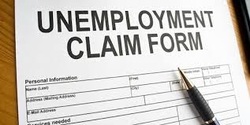 Although there were only two unpublished opinions this week, both were reversed and one was also remanded. In the first case, the Relator is found ineligible for benefits due to employee misconduct. The Appeals Court reversed the decision, without remanding it back to the Department of Employment and Economic Development. The second case (which was reversed and remanded) relates to the Relator’s ineligibility for quitting without good reason attributable to his employer. 1. A13-2346 Richard Hammerstad, Relator, vs. Princeton Auto Center, Inc., Respondent, Department of Employment and Economic Development, Respondent. Summary: Relator challenges an unemployment-law judge’s decision that he is ineligible for unemployment benefits due to employment misconduct. Princeton Auto Center (the employer) claimed that the employee did not have a valid driver’s license due to a recent DUI and is therefore not able to drive vehicles and perform his duties as described at time of hire. During the hearing, the ULJ asked Princeton whether a license was a requirement of Hammerstad’s job, and Princeton responded, “Yes. Mr. Hammerstad was a service technician and driving vehicles is a required part of the job due to diagnosis and other facets of vehicle repair.” Princeton acknowledged that, when it hired Hammerstad, it knew that Hammerstad did not have a driver’s license. Hammerstad argues that his lack of a valid driver’s license did not constitute employment misconduct. Under the circumstances in this case, we agree, and reverse. 2. A14-0050 Benson Giwa, Relator, vs. Wal-Mart Associates, Inc., Respondent, Department of Employment and Economic Development, Respondent. Summary: Relator challenges the determination of the unemployment-law judge (ULJ) that he is ineligible to receive unemployment benefits because he quit his employment without good reason attributable to his employer. Giwa asserted two separate bases for quitting his job: (1) he was subjected to harassment by coworkers; and (2) Wal-Mart breached its agreement to schedule Giwa to work four days each week. Giwa claimed that from 2004 to 2013 he was subjected to racial slurs and harassment by department managers. During these years, Giwa made numerous complaints about the harassment and racial slurs to various managers, but nothing was ever done about it. Finally, March 2012, Giwa complained to the Minnesota Department of Human Rights (MDHR), who then recommended mediation for Giwa and Wal-Mart. However, Wal-Mart representatives failed to show up at any of the three scheduled mediation appointments. Wal-Mart then began to schedule Giwa to only one day of work instead of his usual four days. The ULJ characterized Wal-Mart’s scheduling of Giwa as a “simple mistake” and determined that “a single week of reduced hours would not compel the average, reasonable worker to quit and become unemployed.” The Court stated, “We cannot determine the legal issue of whether Giwa’s reason for quitting amounted to ‘good cause’ because ULJ’s factual findings are not ‘substantially sustain[ed]’ by the evidence in the record.” For this reason, the Court of Appeals reversed and remanded. If you are denied unemployment benefits, or are an employer who wants to challenge a former employee's eligibility for benefits, your best bet is to meet with an attorney who handles unemployment appeals to discuss your options. To that end, I represent both applicants and employers in unemployment appeals. Please call (763) 450-9494 today to set up an appointment to discuss your situation. WARNING: The information contained in this blog post does not constitute legal advice and may not be applicable to your situation. Reading this blog post does not create an attorney-client relationship between you and Baland Law Office, P.L.L.C. Also, Tim is licensed only in state and federal courts in Minnesota. As such, any information provided in this blog post pertains only to those jurisdictions. Further, you should always discuss your situation with an attorney before taking any action based on what you may read in this blog. To that end, please call (763) 450-9494 to set up an appointment to discuss your situation. September 22, 2014 Summary of Decisions on Unemployment Benefits From the Minnesota Court of Appeals9/24/2014 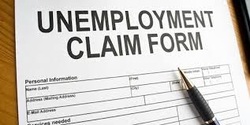 This week there were two unemployment unpublished decisions from the Minnesota Court of Appeals. The first case is quite interesting because it is in regard to whether or not performers and professional staff members are considered employees or independent contractors if hired on a short-term basis, which is the reason Relator Skylark Opera challenges the ULJ’s decision that these persons are employees. The Court reversed this decision. The second case involves the Relator challenging her ineligibility to collect unemployment benefits because she quit her job. This case was affirmed by the Court. A13-2343 Skylark Opera, Relator, vs. Department of Employment and Economic Development, Respondent. Summary: Relator Skylark Opera challenges a final decision by a ULJ determining that performers and professional staff members that they hire on a short-term basis for a handful of annual productions are employees rather than individual contractors, and for this reason that wages paid to these persons are taxable under the unemployment-insurance laws. The Appeals Court held because Skylark Opera hires persons on a short-term basis for only four performances, that the workers were hired as independent contractors. Because the persons hired by Skylark Opera are independent contractors, we reverse. A14-0054 Wendy Bronstad, Relator, vs. The House of Hope, Inc., Respondent, Department of Employment and Economic Development, Respondent. Summary: Relator Wendy Bronstad applied for unemployment benefits, but the Department of Employment and Economic Development determined that she is ineligible because she quit her employment without a good reason caused by her employer. Bronstad filed an administrative appeal, and the unemployment-law judge (ULJ) upheld the ineligibility determination and affirmed this decision after Bronstad requested reconsideration. TheAppeals Court concluded that because Bronstad’s reason for quitting was due to a demotion based on unsatisfactory job performance, substantial evidence supports the ULJ’s finding that the circumstances that caused her to quit would not cause an average, reasonable worker to quit. The ULJ did not err in upholding the determination of ineligibility. Affirmed. If you are denied unemployment benefits, or are an employer who wants to challenge a former employee's eligibility for benefits, your best bet is to meet with an attorney who handles unemployment appeals to discuss your options. To that end, I represent both applicants and employers in unemployment appeals. Please call (763) 450-9494 today to set up an appointment to discuss your situation. WARNING: The information contained in this blog post does not constitute legal advice and may not be applicable to your situation. Reading this blog post does not create an attorney-client relationship between you and Baland Law Office, P.L.L.C. Also, Tim is licensed only in state and federal courts in Minnesota. As such, any information provided in this blog post pertains only to those jurisdictions. Further, you should always discuss your situation with an attorney before taking any action based on what you may read in this blog. To that end, please call (763) 450-9494 to set up an appointment to discuss your situation. 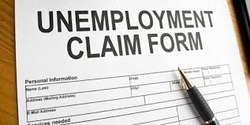 There were two decisions on unemployment benefits from the Minnesota Court of Appeals issued this week. Both decisions were issued on Monday 9/15/2014. The first decision involves a certified nursing assistant who was discharged for employment misconduct and subsequently denied benefits. The second involves a bus driver who had quit her job and was found to meet an exception to the general rule that a person who quits in ineligible for unemployment benefits, but was ultimately denied benefits because she was not available for suitable employment. Both decisions were affirmed. A13-2369, Cathy Justice, Relator, vs. Glacial Ridge Hospital, Respondent, Department of Employment and Economic Development, Respondent. Summary: Relator challenges the decision of an unemployment-law judge (ULJ) determining that she is ineligible for unemployment benefits because she was discharged for employment misconduct. The misconduct included ongoing insubordination issues, failing to work in a respectful manner, having conflicts with co-workers, not wanting to complete required job duties, and continuing to leave the unit for long periods when on the job. Because substantial evidence supports the ULJ’s determination that relator committed employment misconduct by displaying clearly a serious violation of the standard of behavior her employer had the right to expect, the Court of Appeals affirmed. A14-0049, Ja'Na Dickens, Relator, vs. Metropolitan Council, Respondent, Department of Employment and Economic Development, Respondent. Summary: Relator challenges the decision of the unemployment-law judge (ULJ) that she is ineligible during the period for which she sought benefits because she was not available for or actively seeking suitable employment. On September 3, 2013, relator Ja’Na Dickens quit her employment as a bus operator for the Metropolitan Council because the position, which required frequent nighttime and weekend shifts, interfered with her ability to care for her terminally ill son. Dickens returned to her former position as a school bus operator, working part-time from 2:00 p.m. to 6:00 p.m. Monday through Friday, but continued looking for an additional part-time or a full-time transportation position. Dickens limited her search to positions with daytime hours and limited weekend work so she could care for her son. Dickens applied for unemployment benefits. Respondent Minnesota Department of Employment and Economic Development (DEED) determined that Dickens is not subject to the general rule that one who quits employment is ineligible for all unemployment benefits because Dickens quit in order to provide necessary medical care for her son. But DEED determined that Dickens is nonetheless ineligible for benefits because she was not available for suitable employment. The Court of Appeals affirmed the decision, concluding that, while Dickens’s decision to prioritize being available to care for her son over being available for work is understandable, it renders her ineligible for benefits. Accordingly, the ULJ did not err by determining that Dickens was not available for suitable employment during her period of unemployment and therefore was ineligible to receive unemployment benefits. If you are denied unemployment benefits, or are an employer who wants to challenge a former employee's eligibility for benefits, your best bet is to meet with an attorney who handles unemployment appeals to discuss your options. To that end, I represent both applicants and employers in unemployment appeals. Please call (763) 450-9494 today to set up an appointment to discuss your situation. WARNING: The information contained in this blog post does not constitute legal advice and may not be applicable to your situation. Reading this blog post does not create an attorney-client relationship between you and Baland Law Office, P.L.L.C. Also, Tim is licensed only in state and federal courts in Minnesota. As such, any information provided in this blog post pertains only to those jurisdictions. Further, you should always discuss your situation with an attorney before taking any action based on what you may read in this blog. To that end, please call (763) 450-9494 to set up an appointment to discuss your situation. September 8, 2014 Summary of Decisions on Unemployment Benefits From the Minnesota Court of Appeals9/9/2014 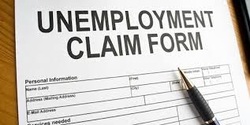 This week there were only two unpublished opinions from the Minnesota Court of Appeals related to unemployment benefits. The relator in the first case challenges the ULJ’s decision that she was overpaid unemployment benefits because she improperly reported her earnings. The appeal by the relator in the second case is one we commonly see – the ULJ’s decision that he is ineligible to receive unemployment benefits because he quit his employment without good reason caused by his employer. Both cases were affirmed. 1. A14-0386 Kristin Buege, Relator, vs. County of Houston, Respondent, City of Caledonia, Respondent, Department of Employment and Economic Development, Respondent. Summary: Relator appeals an unemployment-law judge (ULJ) decision that she was overpaid unemployment benefits because she improperly reported her earnings. Relator worked as the City of Caldonia and Houston County in a variety of roles with varying rates of pay. Further, some of the earnings were deductible, and reduces the amount of unemployment benefits, and some were not deductible. The end result was that Relator received an overpayment of unemployment benefits. On appeal, Relator argues argues that the ULJ erred by failing to consider that she reported her earnings in good faith and by miscalculating her earnings. However, acting in good faith is not a defense to an overpayment of unemployment benefits. We affirm. 2. A14-0172 Cody Sigfrid, Relator, vs. Osseo Powersports, Inc., Respondent, Department of Employment and Economic Development, Respondent. Summary: Relator challenges the unemployment-law judge’s (ULJ) determination that he is ineligible for unemployment benefits because he quit his employment without good reason caused by his employer. The ULJ found that Relator quit his job for personal reasons (to become a full-time student), and consequently was ineligible for unemployment benefits. We affirm. If you are denied unemployment benefits, or are an employer who wants to challenge a former employee's eligibility for benefits, your best bet is to meet with an attorney who handles unemployment appeals to discuss your options. To that end, I represent both applicants and employers in unemployment appeals. Please call (763) 450-9494 today to set up an appointment to discuss your situation. WARNING: The information contained in this blog post does not constitute legal advice and may not be applicable to your situation. Reading this blog post does not create an attorney-client relationship between you and Baland Law Office, P.L.L.C. Also, Tim is licensed only in state and federal courts in Minnesota. As such, any information provided in this blog post pertains only to those jurisdictions. Further, you should always discuss your situation with an attorney before taking any action based on what you may read in this blog. To that end, please call (763) 450-9494 to set up an appointment to discuss your situation. September 2, 2014 Summary of Decisions on Unemployment Benefits From the Minnesota Court of Appeals9/2/2014 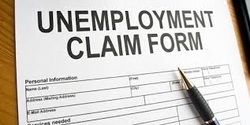 There were three unpublished opinions this week from the Minnesota Court of Appeals. All three are interesting cases, especially the third case. In the first case, the Relator quit her job due to stress and anxiety and challenges the ULJ’s determination that she is ineligible for unemployment because she quit her job for medical reasons. The second case involves a Relator who received unemployment benefits for a year, and then attempted to establish another benefit account, even though he had not lost a job while he was receiving benefits. The third case is odd and definitely worth a look because it involves an appeal by an employer of a determination by Unemployment Insurance Minnesota that a former employee is eligible to receive benefits. All three cases were affirmed. 1. A14-0057 Sondra Keeney, Relator, v. Midwest Special Services, Inc., Respondent, Department of Employment and Economic Development, Respondent. Summary: Sondra Keeney was employed by Midwest Special Services, Inc., until she quit due to stress and anxiety. An unemployment-law judge determined that she is ineligible for unemployment benefits. On appeal, she argues that she is eligible because she had a serious illness that made it medically necessary to quit and because she quit for a good reason caused by her employer. Although there is a medical exception to the general rule that quitting employment results in ineligibility for unemployment benefits, the unemployment law judge found that Keeney did not prove that she had to quit for medical reasons by introducing evidence, such as a doctor's note. The Court of Appeals affirmed because the unemployment law judge's decision was supported by substantial evidence. 2. A13-2221 Donald Bergs, Relator, v. Midwest Special Services, Inc., Respondent, Department of Employment and Economic Development, Respondent. Summary: Donald Bergs sought and received unemployment benefits from the department of employment and economic development after being terminated from his job. After the end of the benefit year applicable to his benefit account, Bergs tried to establish another benefit account. But the department invalidated his attempts to do so because Bergs had not experienced another loss of employment. The department also determined that the unemployment benefits Bergs received on his original benefit account must be reduced by an amount equal to 50 percent of his Social Security old-age benefits. In this petition for certiorari review, Bergs challenges the department’s invalidation of his attempts to establish another benefit account and the department’s reduction of his benefits. We affirm. 3. A14-0052 Tonya Johnson, Respondent, v. Asbestos Workers Union No. 34, Relator, Department of Employment and Economic Development, Respondent. Summary: Asbestos Workers Union No. 34 (the Union) challenges the unemployment-law judge’s decision that respondent Tonya Johnson is eligible for unemployment benefits because she was not discharged for employment misconduct. The "misconduct" in this case was allegedly knowing that Johnson's supervisor had misappropriated Union funds to pay for personal services on Johnson's behalf -- a repairperson's examination of Johnson's air conditioning unit to determine why it was not working and an attorney in a criminal matter. The unemployment law judge found that Johnson did not know that Union funds had been misappropriated to pay either the air-conditioning bill (indeed, Johnson did not know that there was a bill) or her attorney. The Union contends that the evidence does not support the factual findings and that the unemployment-law judge should have issued a subpoena and ordered an additional hearing. Because substantial evidence supports the findings and the unemployment-law judge acted within her discretion, we affirm. If you are denied unemployment benefits, or are an employer who wants to challenge a former employee's eligibility for benefits, your best bet is to meet with an attorney who handles unemployment appeals to discuss your options. To that end, I represent both applicants and employers in unemployment appeals. Please call (763) 450-9494 today to set up an appointment to discuss your situation. WARNING: The information contained in this blog post does not constitute legal advice and may not be applicable to your situation. Reading this blog post does not create an attorney-client relationship between you and Baland Law Office, P.L.L.C. Also, Tim is licensed only in state and federal courts in Minnesota. As such, any information provided in this blog post pertains only to those jurisdictions. Further, you should always discuss your situation with an attorney before taking any action based on what you may read in this blog. To that end, please call (763) 450-9494 to set up an appointment to discuss your situation. |
AuthorTimothy H. Baland, Esq. Categories
All
|
 RSS Feed
RSS Feed